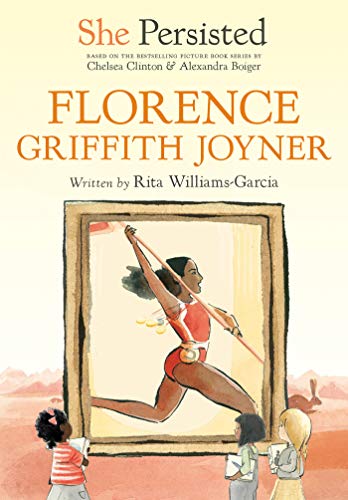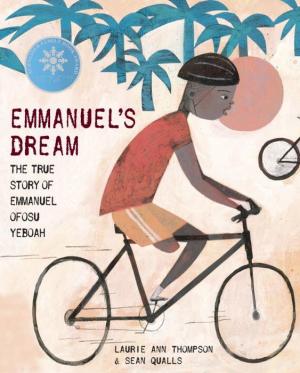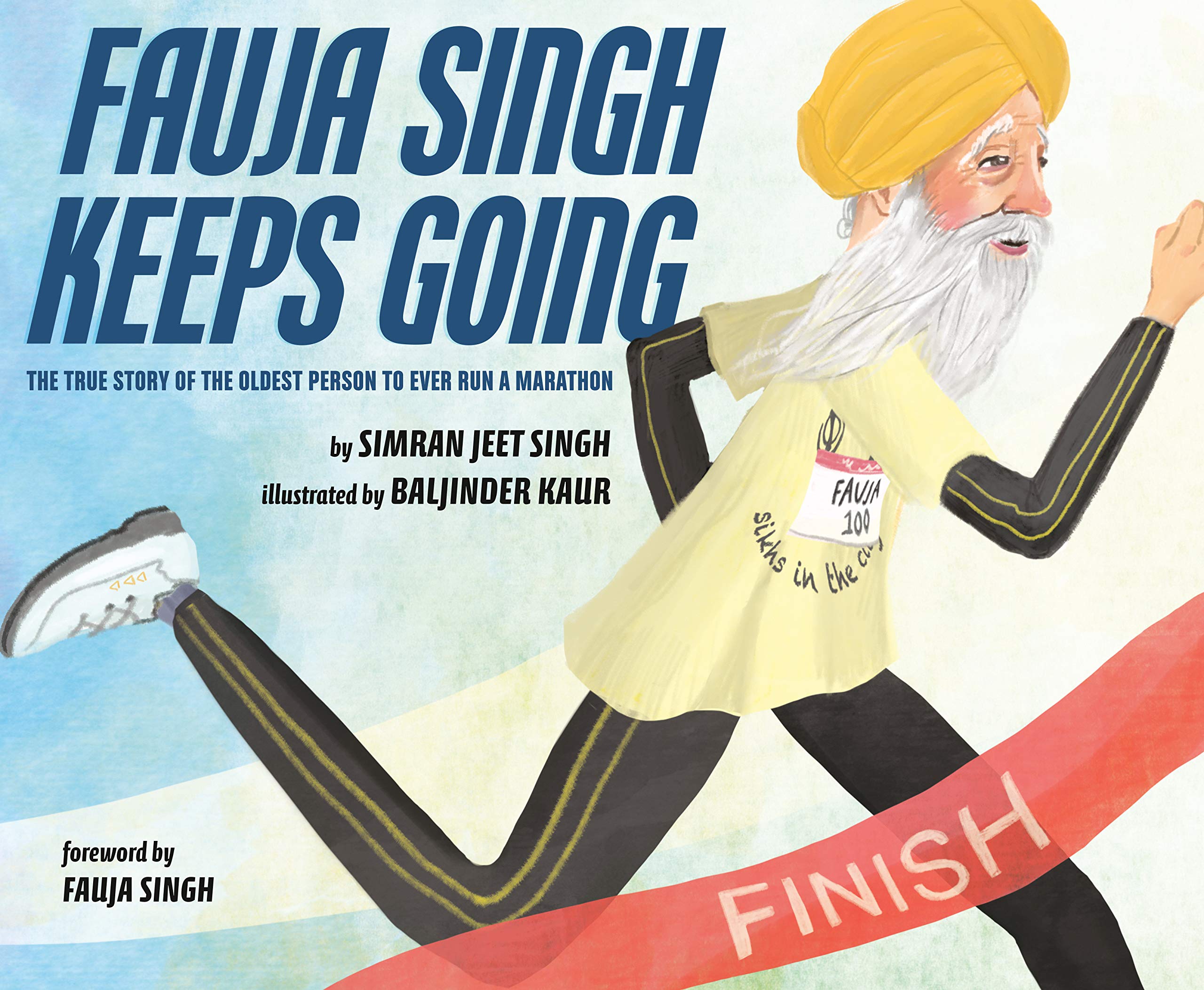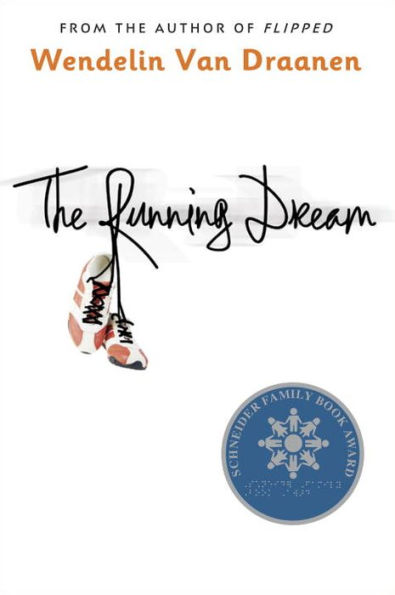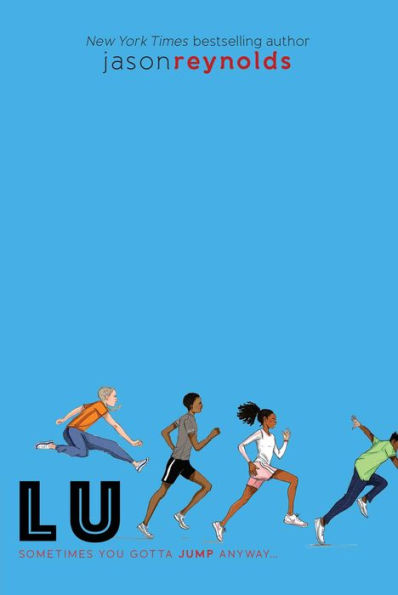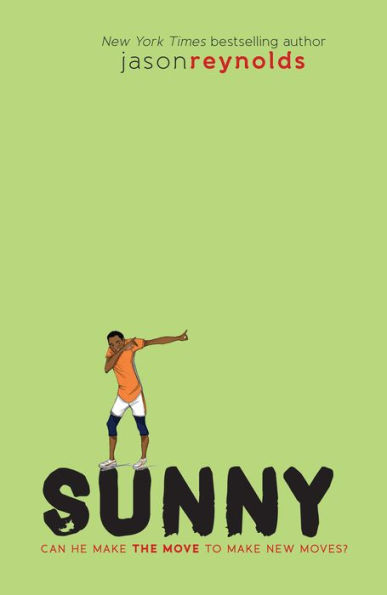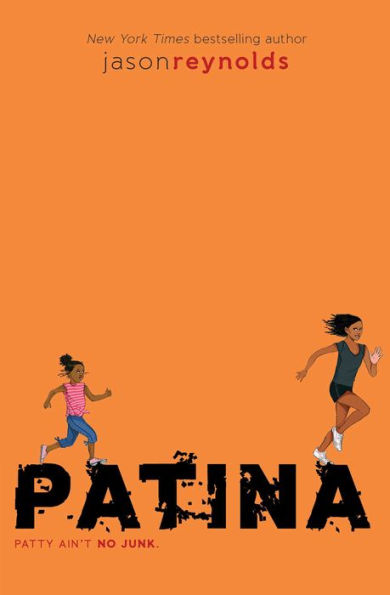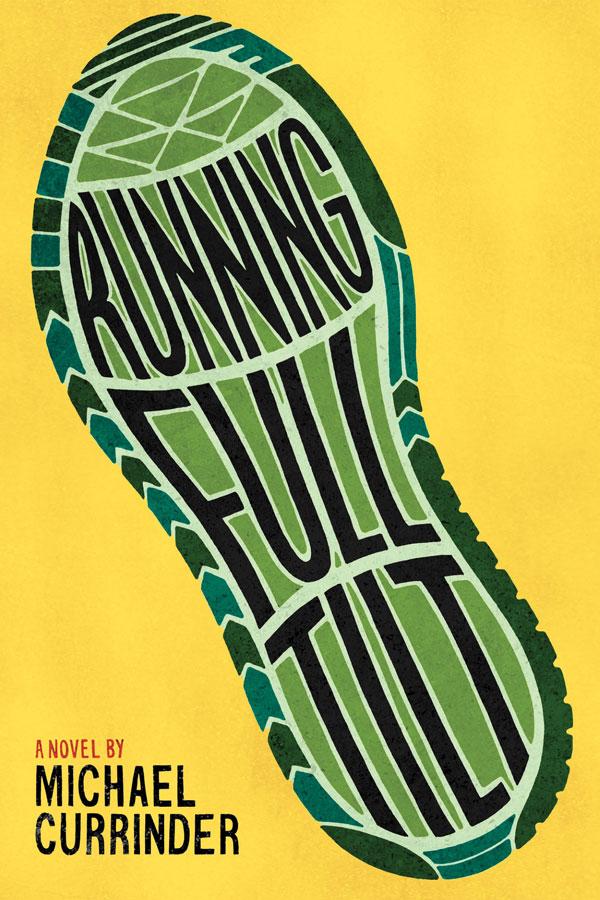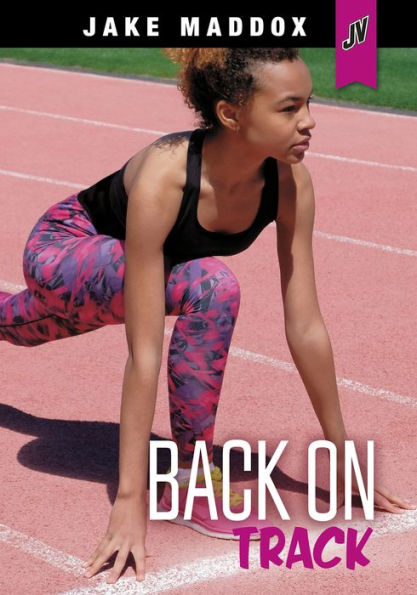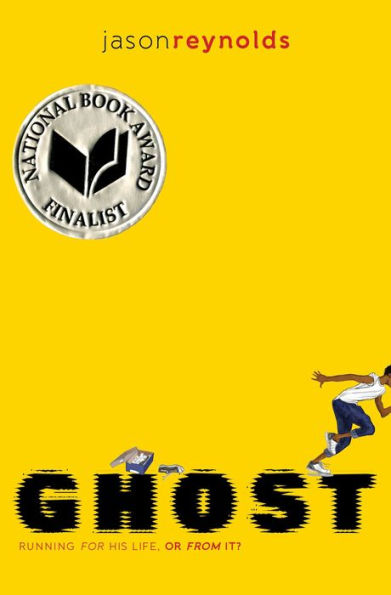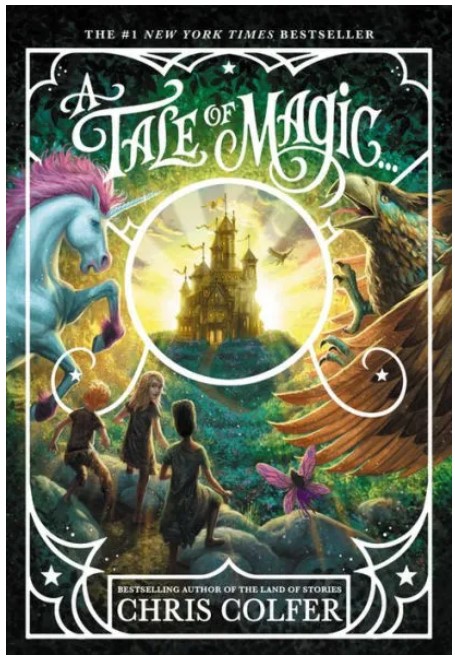Considered the fastest woman of all time, Florence Griffith Joyner, also known as Flo Jo, set two world records in 1988 that still stand today. But getting there wasn’t easy, and Flo Jo had to overcome many challenges along the way. The book begins with Florence’s early childhood when she raced her siblings and the jackrabbits that lived in the Mojave Desert. As she raced the jackrabbits, she “got faster and faster. Then one day she caught a jackrabbit.”
Florence loved running and she loved fashion. When Florence began school, the other kids teased her about her clothes, but Florence’s mother taught her to “just move on.” This mantra served Florence throughout her life. Florence persisted in reaching her goals even when circumstances were unfair. When others doubted her, Florence just worked harder.
After overcoming many obstacles, Florence won silver at the 1984 Olympics for the 200-meter race. Despite medaling, Florence was disappointed in herself. “She did not want to be remembered as being second best,” and she vowed to do better in the next Olympics. Throughout her running career, Florence still had many other interests, including fashion. Florence continued to embrace bright colors and she even “found ways to stand out in her colorfully self-styled track outfits.” In the end, Florence embraced both her love of fashion and her love of running.
She Persisted: Florence Griffith Joyner introduces young readers to an Olympian who was known as the fastest runner in the world. The chapter book gives glimpses of Florence’s early years, her family life, as well as the racial and economic obstacles that she overcame. Through her can-do attitude and her ability to move past hardship, Florence trained and pushed herself until she reached her goals. However, Florence also continued expressing her artistic side through her fashion and by painting, writing, and even acting. In 1993, Florence was named as co-chair to the President’s Council on Physical Fitness; she used this platform to help “educate children about the importance of exercise, healthy eating and excelling.”
Despite those who doubted Florence’s ability, she never gave up. She said, “when anyone tells me I can’t do something. . . I’m just not listening anymore.” Florence’s story will encourage readers to work hard and persevere through difficult situations. Her encouraging story highlights the importance of staying true to yourself. While educating children, Florence said, “I always encourage kids to reach beyond their dreams. Don’t try to be like me. Be better than me.”
Florence’s story includes fun anecdotes from her childhood that will pull children into the book. To help keep readers engaged, the book has short chapters and black-and-white illustrations that appear every three to five pages. The book is packed full of information about Florence’s life, and while younger readers may not understand the significance of some of the events, they will be inspired by Florence’s attitude and accomplishments. The book ends with advice on how readers can be like Florence.
She Persisted: Florence Griffith Joyner is the perfect book for adults to read to a child. The encouraging book reinforces the importance of persistence as well as teaching other important life lessons. For more inspiring biographies, add these picture books to your list: Fauja Singh Keeps Going by Simran Jeet Singh and Emmanuel’s Dream by Laurie Ann Thompson & Sean Qualls.
Sexual Content
- None
Violence
- Joyner’s family moved to the same neighborhood where the Watts Rebellion took place. The rebellion began when “white police officers attempted to arrest a Black motorist who was suspected of drunk driving. A scuffle ensued between the man and the police. . . the scuffle had turned quickly into police brutality.”
- One of Florence’s competitors, Valerie Brisco, dedicated her races to her brother, who was “a track star who had been killed by a stray bullet while he worked out.”
Drugs and Alcohol
- When Florence won multiple gold medals during the Olympics, “murmurs and whispers spread rapidly. Many believed Florene cheated by using illegal drugs to make her stronger, increase her stamina and allow her to run faster.” Even though all the drug tests came back negative, rumors still spread.
Language
- None
Supernatural
- None
Spiritual Content
- When having a difficult time, Florence’s “mother reminded Florence to keep God near, while her father reminded her that she could face any challenge.”
- For a time, Florence doubted herself which caused her to pray daily.
